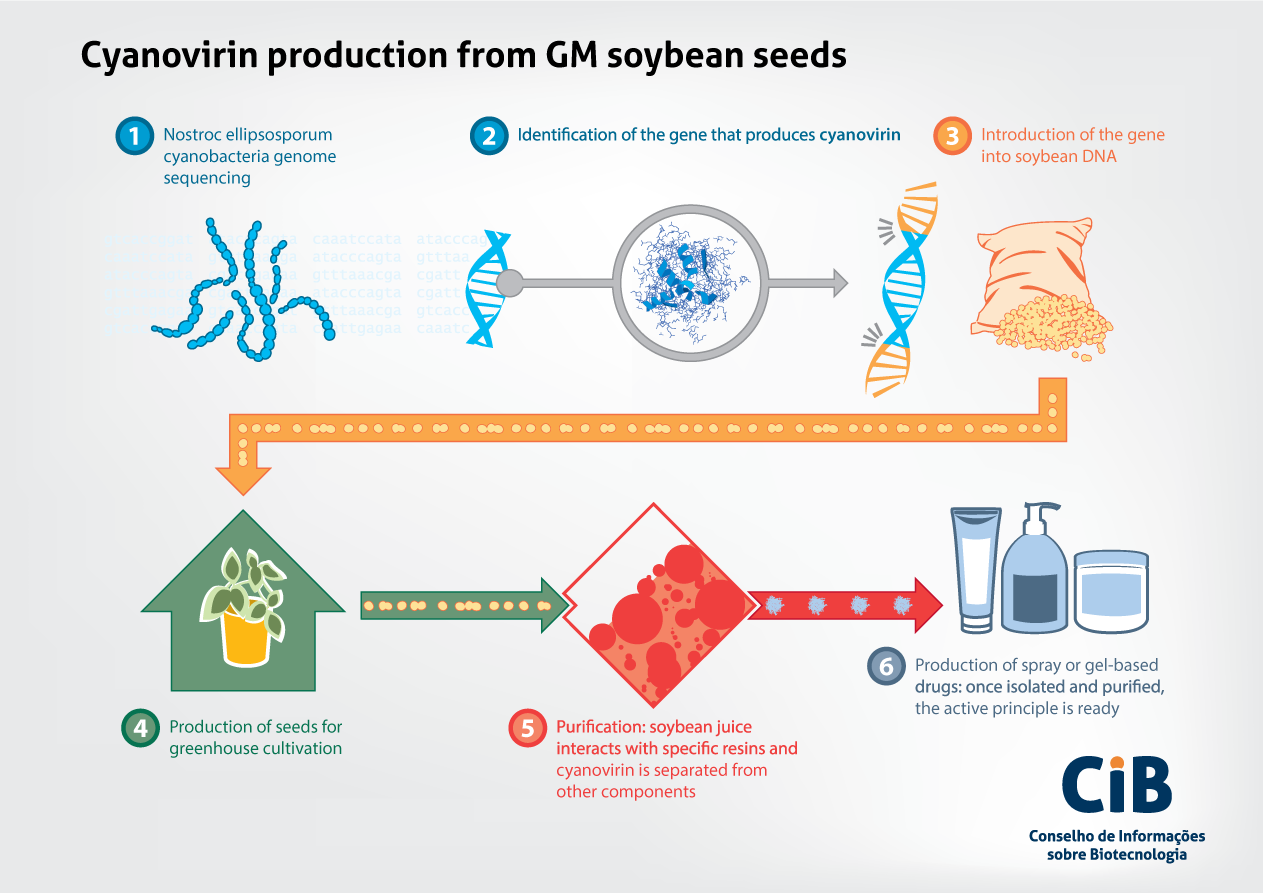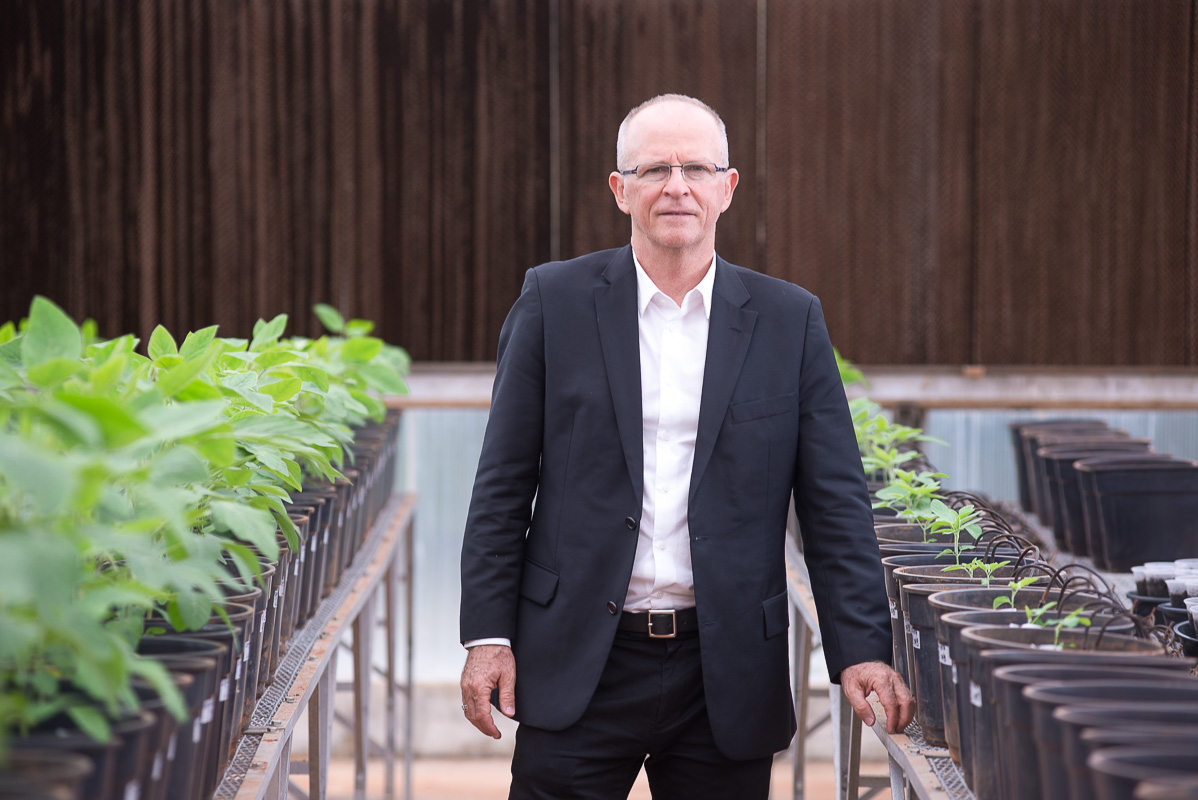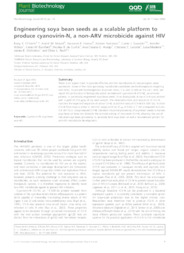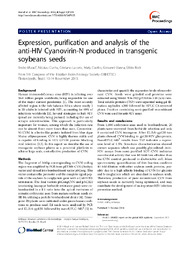Study to fight HIV gives Embrapa international award
Study to fight HIV gives Embrapa international award
A research that can help fight HIV,conducted by Embrapa Genetic Resources and Biotechnology in partnership with the United States National Institute of Health (NIH), the University of London, and South Africa's Council for Scientific and Industrial Research (CSIR), received an international award on November 15 from the Federal Laboratory Consortium for Technology Transfer Mid-Atlantic Region (FLC SEA). The study, previously published in 2015, has shown that genetically modified (GM) soybean seeds are a viable biofactory for the large scale production of a protein extracted from cyanobacterias (microorganismos that are also called blue algae), which is efficient against the virus that can lead to the development of AIDS.
By definition, a biofactory or biological factory is when an organism - in this case, GM soybean- becomes a factory to manufacture compounds (like proteins and enzymes) used in medicine and the textile and detergent industries, for instance. “The 1990s brought forth the idea to use genetic engineering for humanitarian work, with a focus on Africa. Countries that, in the future, receive the vaginal gel based on cyanovirin - a protein extracted from cyanobacteria - will not need to pay royalties for this technology”, highlights the agrarian engineer and researcher from Embrapa Genetic Resources and Biotechnology and CIB council member, Elibio Rech.
According to him, soybean seeds normally accumulate 40% of protein, hence they are recommended for cyanovirina production, at a low cost and easy transport and supply. “For over a decade, in Brazil and the U.S we have started purifying this protein to get 100% pure raw material. Technically, the hardest part of the entire process has already been done. Now the next steps are to produce the seeds and generate protein on a large scale, and then conduct pre-clinical and clinical trials”, asserts Rech, that also has a PhD in Life Sciences from the University of Nottingham, UK, and is a member of the Brazilian Academy of Sciences and coordinator of the National Institute of Science and Technology - Synthetic Biology (INCT ByoSin). The researcher also explains that, since such soybean is for medicinal purposes, the idea is that it would not be cultivated in the fields, but rather in greenhouses, in controlled conditions.
Rech says that he received the news about the award with joy and satisfaction. “It is an emblematic project for genetic engineering, aimed segments of society that have little access to medicine. And they are high-technology products with high added value”, he assesses. The Embrapa researcher hopes that the technique is repeated with several other molecules, for vaccines against dengue and malaria and in treatments against breast cancer, for example. In Africa alone, 20% of deaths are due to AIDS. According to data from the World Health Organization (WHO), about 20% of the adult and young population in Zambia and South Africa lives with the virus. In Brazil, according to estimates from the United Nations (UN), the number of people living with the virus has risen 3% between 2010 and 2016, as opposed to the rest of the world, that recorded a fall of 11% in the period.

Translation: Mariana Medeiros
CIB
Embrapa Genetic Resources and Biotechnology
Press inquiries
cenargen.nco@embrapa.br
Phone number: +55 61 3448-4768
Further information on the topic
Citizen Attention Service (SAC)
www.embrapa.br/contact-us/sac/



